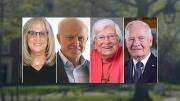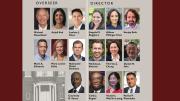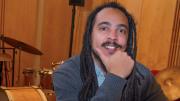The Harvard Library Board, composed of faculty and administrators from across the University, has approved a new organizational structure for the Harvard Library and laid out a timeline for transition to the new arrangement, Provost Alan M. Garber announced September 28 in a letter to the Harvard community.
Under the new structure, each individual library within the Harvard Library system will join one of five affinity groups based on criteria such as collection needs, content or service commonalities, or specialized activities. The five groups comprise
- libraries focused on application of theory in practice, including those of the schools of law, business, education, and government;
- a group focused on physical and life sciences with shared research responsibilities, including the medical school library and the science libraries;
- a group formed around content areas, such as the humanities and the social sciences, including major collections such as those of Widener and Lamont;
- libraries of arts and culture such as fine arts, architecture, music, theater, and film;
- and finally, a group of special collections libraries such as Houghton and the University Archives.
In many cases, libraries within these groups were already working closely together, said Helen Shenton, executive director of the library, in an interview. The groups are designed to facilitate collaboration, she emphasized. “They are not intended to be new silos in any way. We want to enable and encourage collaboration across the groups.”
The directors of individual libraries will continue to report to deans within their own schools, but each will also report to the head of an affinity group, who will report in turn to the executive director of the library. Group heads, Garber wrote in his letter, “will be charged with advancing the strategic goals of the Harvard Library.”
For example, Shenton said, “We know that we need an integrated collection-development strategy.” The new structure, she explained, balances the desire “to respect and cherish and nourish the individuality of the libraries” with the “need to work toward shared services,” for which new heads have been hired recently in the areas of information and technical services, preservation and digital imaging services, and access services. A new chief financial officer will also report to Shenton. (See the Harvard Library’s new organizational design). These changes also lay the groundwork for more collaboration with outside library systems, which will necessarily have implications for collection-development strategy.
Individual libraries will, during the next 45 days, have the opportunity to change affinity groups. During this same period, a nomination process will be developed for the appointment of the affinity-group heads, who will be chosen from among professional librarians already working within the Harvard Library system. “Furthermore,” Garber wrote, “we plan to review the affinity-group assignments after 18 months, giving the Schools and individual libraries an opportunity to modify the group structure as we gain experience with the organization.” The transition will be completed sometime in 2013.
The overall reorganization of the Harvard libraries, begun in 2009, will enter the implementation phase in 2012, says Shenton. Changing such a large and far-flung organization is complex, she conceded, but her main message is “how much progress we are making.”








